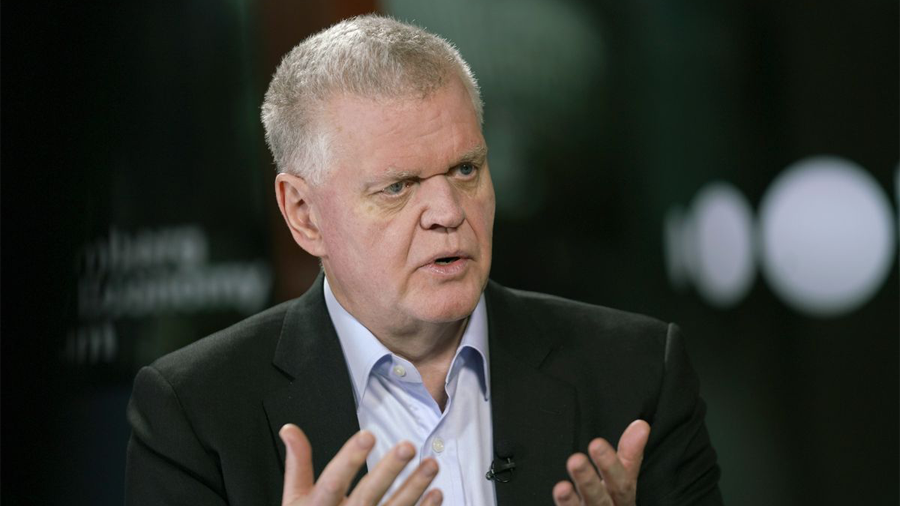Chinese group Evergrande on Thursday secured major approval from creditors in the country to delay payments on one of its debt securities, while other developers are also trying to negotiate new terms to avoid default.
Evergrande has liabilities of more than $300 billion and is seeking longer terms for coupon payments and bond redemptions to avoid a technical default that would complicate its politically sensitive financial restructuring.
The deadline for approval of a six-month delay in payments on the 4.5 billion yuan ($157 million) bond, yielding 6.98% and due in January 2023, ended early on Thursday.
The bond’s terms gave holders the right to sell it back to the issuer on January 8.
But in a statement Thursday night (local time), the developer’s main unit, Hengda Real Estate Group, said it had reached an agreement with creditors to delay payments.
Of the creditors who voted, 72.3% approved the proposed extension of payments, according to the statement, adding that bond trading, suspended since January 6, will resume on Monday.
Evergrande, the world’s most indebted real estate developer, has so far met debt obligations in China, which make up most of its debt, but has already defaulted on some international bonds.
Chinese developers are facing an unprecedented liquidity squeeze as a result of years of restrictive regulatory measures on financing, which have led to defaults on international debt, credit rating downgrades by credit rating agencies and widespread sales of government bonds. sector.
A report this week by the World Bank says that a severe and prolonged crisis in China’s real estate market will have impacts on the country’s economy, as local and international commitments by the country’s developers add up to almost 30% of GDP.
Shanghai-based Shimao will hold online meetings with creditors of two asset-backed securities (ABS) on January 17 to vote on proposed payment extensions, according to documents seen by Reuters on Thursday.
Shimao’s two ABSs — worth a total of 1.17 billion yuan — expire later this month, but the company is looking to delay that until the end of 2022, while making some payments in stages ahead of the new deadline.
Shimao’s subsidiary Shanghai Shimao confirmed late on Thursday that it transferred funds to repay the 4.65% yuan bond with an outstanding principal of 1.9 billion yuan and due on Saturday. But the company did not give information about the $28 million coupon that expires on the same day.
Shimao also has an offshore coupon of $13 million due Sunday and an onshore coupon of 22.5 million yuan due next Wednesday.
Separately, Yuzhou announced an exchange offer for two of its dollar-denominated bonds due later this month – worth a total of $582 million. The offer involves extending maturities by one year to avoid default.
The company is expected to delay coupon payments totaling $110 million due in January and February, Yuzhou said in a filing.
The company is also seeking consent from the creditors of all its other $4.5 billion bonds to amend terms that would help prevent cross-defaults if other bondholders seek reimbursement.
Nomura estimates the industry’s liquidity squeeze could intensify as companies must honor commitments totaling around 210 billion yuan in each of the first two quarters of the year. In the fourth quarter of last year the figure was 191 billion.
Developers also rush to raise funds in the market to pay off debts.
One of the important companies in the sector, Sunac China announced this Thursday that it would raise 580 million dollars with a sale of shares.
Guangzhou R&F Properties, which has a string of real estate projects in global cities such as London, had its Hong Kong unit go into “selective default” on Thursday after it delayed paying off debt.
Shares of Chinese developers closed lower on Thursday, with Sunac and Agile plunging 22.6% and 13.3%, respectively. Shimao shares were down 9.4%, while Yuzhou was down 6.9%. Evergrande shares fell 3.6%.
Reference: CNN Brasil
I am Sophia william, author of World Stock Market. I have a degree in journalism from the University of Missouri and I have worked as a reporter for several news websites. I have a passion for writing and informing people about the latest news and events happening in the world. I strive to be accurate and unbiased in my reporting, and I hope to provide readers with valuable information that they can use to make informed decisions.






